In the James Bond film Quantum of Solace, a CIA honcho is criticized by a junior colleague for working with a disreputable character. “Yeah, you’re right,” replies the spook. “We should just deal with nice people.”
Donald Trump, Vladimir Putin, Elon Musk—it’s been a terrific few weeks for Bond villains.
Trump is riding high just now. He has been elected president again and did so while winning more votes overall than did his Democratic opponent, whose name escapes me just now, as, indeed, it apparently eluded millions of Democrats on Election Day. (There is no such thing as the “national popular vote,” but, given that Trump won in 2016 with fewer votes coast-to-coast than did the wife of that guy who used to be the president a long time ago, the overall vote share is significant.) With his ridiculous Cabinet nominations, he has once again demonstrated that there is no depth of self-abasement to which he cannot bully Republicans into plumbing.
And he even got to MSNBC!
Joe Scarborough, formerly a Republican member of the House and currently the host of the big morning program on MSNBC, became a critic of Donald Trump after having been a key early booster. It would be fair to say he has been a trenchant critic. It would even be fair to say he has been a hair-on-fire critic—that is his own characterization, not mine. (In the interest of full disclosure: I have been a guest on Morning Joe a few times and have gotten to know Scarborough a little bit over the years, and I think of him as a friend.) In spite of his strong opposition to Trump, Scarborough and his co-host (and wife), Mika Brzezinski, made the trip down to Mar-a-Lago to meet with the president-elect in the hopes of establishing a more productive exchange going forward.
This was not what you would call “well-received” among the MSNBC tribe.
Scarborough is in the funny position of being a former Republican officeholder with a very big footprint on the cable channel that the more energetic kind of progressives consider their own turf. While his views and attitudes have evolved over the years, his baseline sensibility has always been one shared with the very people who first rallied to Trump’s cause: New York City outer-borough types and suburbanites with Catholic backgrounds of the sort we used to refer to as “white ethnic.” Scarborough is a Southerner, but he wouldn’t be out of place in Long Island; when I first got to know him, he was living in the Connecticut suburbs of New York and seemed right at home there. And, in fact, he took a rather more positive view of Trump for a time.
Scarborough’s largely left-leaning audience of course went ape when he reported the meeting on his show. MSNBC contributor Jennifer Rubin unsubtly pressed for a boycott targeting her own channel in response to the “disgusting” spectacle of ... well, what, exactly? Two people who host a news-talk show meeting with an elected official?
Brzezinski pointed to the case of her father, Zbigniew Brzezinski, who was a major foreign-policy figure in the Johnson and Carter administrations and who was the principal architect of the U.S. response to the Soviet Union’s invasion of Afghanistan in 1979. Students of 20th-century history will no doubt be mindful that the anti-communist project involved talking to a lot of people who were not very nice at all. One can be too indulgent—even the best of us easily can be too indulgent—but one of the lessons of the anti-Soviet campaign is that it probably is better to maintain an open line of communication to Idi Amin than to enjoy the fleeting moral satisfaction that would come from cutting the lines.
(Jonah Goldberg will not forgive me if I fail to note Dr. Amin’s full handle: His Excellency, President for Life, Field Marshal Al Hadji Doctor Idi Amin Dada, VC, DSO, MC, CBE, Conqueror of the British Empire in Africa in General and Uganda in Particular, Lord of All the Beasts of the Earth and Fishes of the Seas. Donald Trump is hardly the first specimen of his kind.)
The most important question in practical politics (and in much else) is: “Compared to what?” If you believe that Scarborough has sullied himself and MSNBC by meeting with the president-elect and then explaining the meeting to his audience, then what do you imagine the preferable alternative to be? As Scarborough concedes, the “Resistance” stuff and the hair-on-fire stuff has failed—obviously and spectacularly!—on its own terms. I understand the anathematizing impulse and sympathize with it to a considerable extent: My writing this will lead to some awkward conversations in the near future, no doubt, but I do not believe that there is any honorable way to serve in the Trump administration. Joe Scarborough isn’t looking for a new job, though: Covering politics is already his job.
What cable-news commentators do isn’t exactly what a New York Times political reporter does in terms of the tenor of the journalism, but it is a variation on the theme. The instinct of news outlets (and MSNBC, whatever its deficiencies, is still one of those) to pet their audiences and to flatter their prejudices has been one of the most destructive trends in recent journalism—second only to the audiences’ own demand that their news and commentary providers pander to them. About three times a week, somebody criticizes me for failing to defer to my constituency, and I have to remind them that I am not running for elected office.
(There’s only one elected job I think I’d enjoy having, and Brewster County already has a sheriff, about whom I know nothing other than the facts that he looks exactly like a sheriff of Brewster County is supposed to look and needs a new truck.)
In some ways, my judgment of Trump enablers such as Mike Pence and Ted Cruz (and Mike Lee and J.D. Vance and ...) is more exacting than my judgment of Trump himself. Whatever else you may say about Trump, he has nowhere and at no time given me the impression of being a man who knows better. You don’t blame Trump for being Trump any more than you blame a mosquito for biting you. You just hope you don’t get malaria or dengue or West Nile or whatever.
Politics will be back. It will be back presently and with a vengeance. One of the reasons for that—and I will have more to say about this in Part 2 later this week—is that it is in the nature of factions to subdivide into two or more new factions once they have achieved a position of dominance, however temporary or unstable. The Trump element today owns the Republican Party, most of whose members are happy to be owned, and, if nothing else, the economics of competing grifts will ensure that the faction is acrimonious, rapacious, and riven. And Trump is a lame duck before even being sworn in. It is going to be a mess. But it is not going to be the end of the world, or the end of these United States.
(Probably.)
I have interviewed all sorts of distasteful people over the course of my career. In fact, I had agreed to an interview with Donald Trump back in 2012, when he also was kicking around the idea of running for president. I’ve interviewed communists, Nation of Islam representatives, pornographers, Flat Earthers, conspiracy kooks, and Bernie Sanders voters who checked more than one of the previous boxes. It’s what you do in my line of work.
The politics of cooties is bad enough. Journalism of cooties—where we just don’t talk to people we personally think poorly of—isn’t journalism at all.
Scarborough notes that the internet world reacted hysterically and histrionically to his meeting with Trump, whereas in the real world, most people took the meeting and his reporting of it to his audience as a matter of course. That is part of the problem, too: Since the introduction of the first iPhone nearly two decades ago, the internet has been transformed from a tool into an environment, from a kind of wide-open virtual place one visits from time to time to a suffocating place one escapes from only time to time, if at all. That, as much as the ghastly particularities of Donald Trump, is the rancid secret sauce of our current political moment. But it is possible to counteract it.
I do not think that temperateness probably comes naturally to Joe Scarborough or to me—in our time, the commentary business typically does not reward the even-keeled—but the pursuit of a virtue can be, at times, as worthwhile as the achievement of it. And, as a cynical practical matter, temperateness might end up being a better strategy for containing Donald Trump, who thrives on drama, especially in the form of emotionally charged adversarial performances. Trump does not want things to quiet down—nominating Matt Gaetz as attorney general is at least as much about the reaction to that nomination as it is about Gaetz himself, probably more. If you wanted to torture Trump, all you would need is a quiet, comfortable room with no television or wi-fi. He would rather be screamed at by his enemies than sit in silence. If Trump could be shouted down or shamed into being a better sort of man, we’d have stopped thinking about him at all around 1983.
Maybe Scarborough is right and that it is time to try calming down. Because the other way of doing things hasn’t produced the results we had wanted.
Editor’s Note: Part 2 of “Politics Will Return” was published on Friday, November 22.
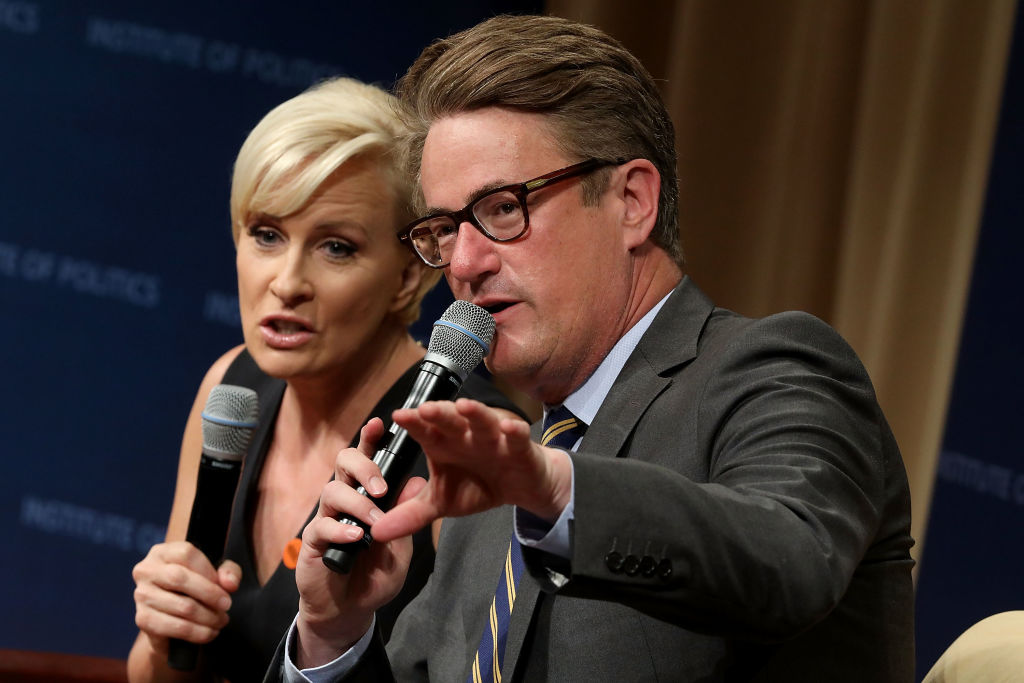

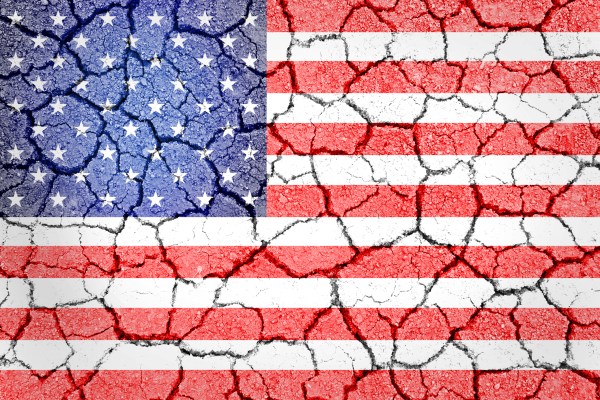
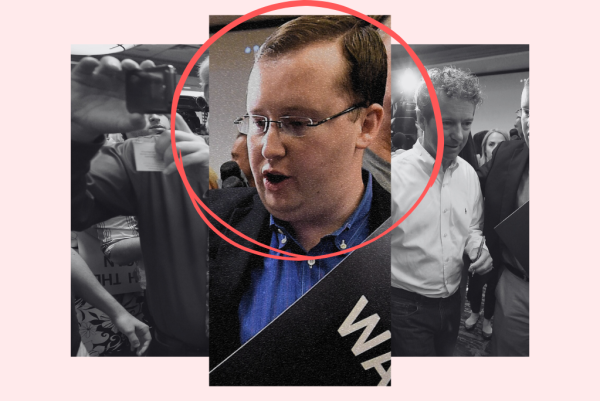
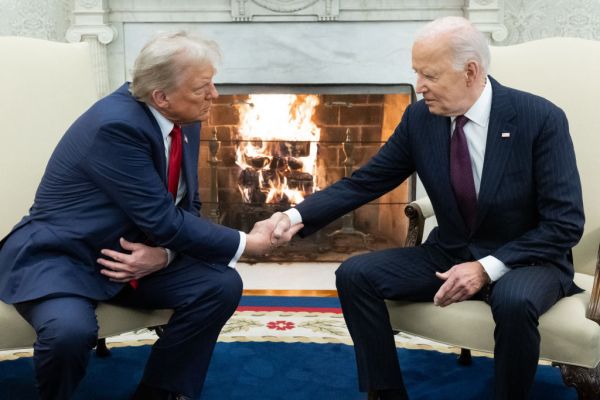

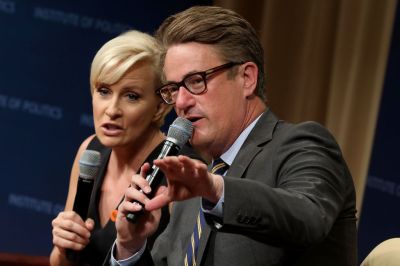
Please note that we at The Dispatch hold ourselves, our work, and our commenters to a higher standard than other places on the internet. We welcome comments that foster genuine debate or discussion—including comments critical of us or our work—but responses that include ad hominem attacks on fellow Dispatch members or are intended to stoke fear and anger may be moderated.
With your membership, you only have the ability to comment on The Morning Dispatch articles. Consider upgrading to join the conversation everywhere.